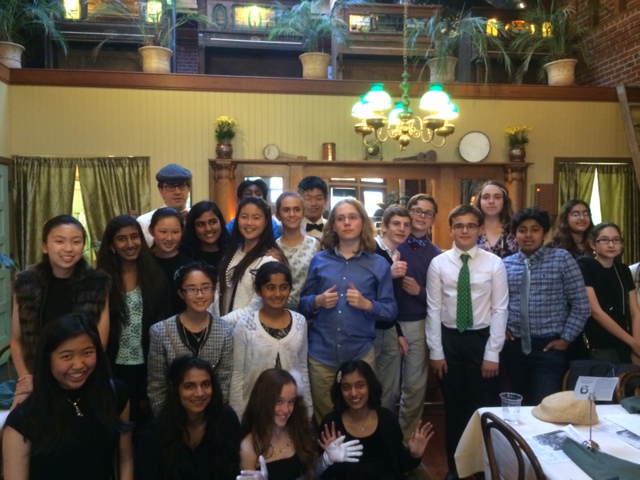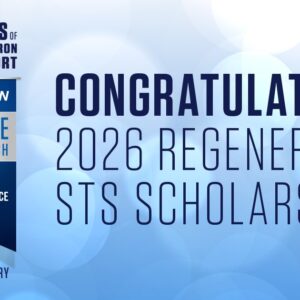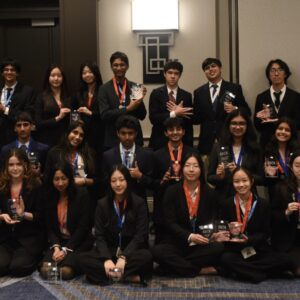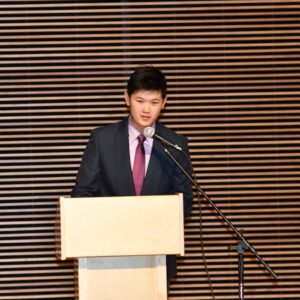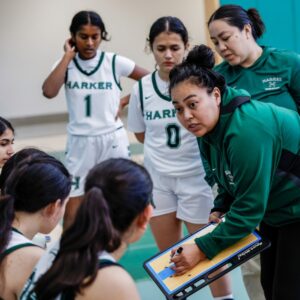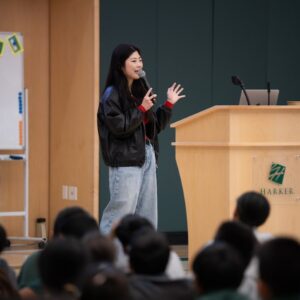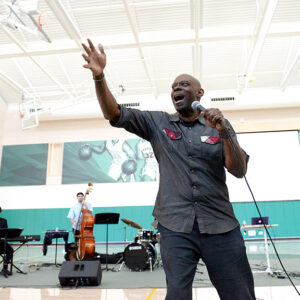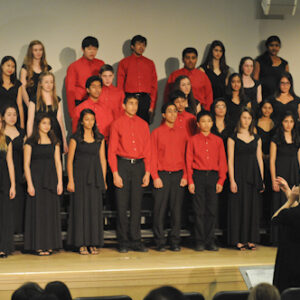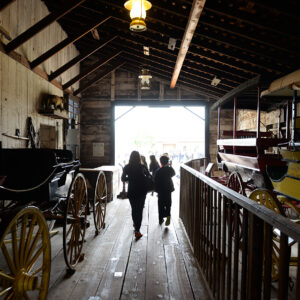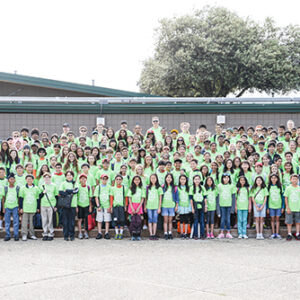The inaugural grade 8 off-campus 1920s party was a rousing success! This year, the eighth grade class placed emphasis on concluding many units with a social event at which students debated issues, values, and even food and drink from each era while playing the roles of different historical individuals.
The students, however, stepped it up recently. Rather than playing the roles of 1920s celebrities and learning about scandals and social history from the period in class, they did so in an authentic 1920s atmosphere off campus. The students, all very well dressed in 1920s attire, convened at the Orchestria Palm Court in downtown San Jose. A special thanks to Denise Sorkin, French teacher, who attended in a magnificent flapperesque dress herself, said Cyrus Merrill, social sciences and history teacher who led the group.
History flowed throughout the night, from the pouring of Prohibition-era non-alcoholic drinks to searching all over the restaurant for various sheet music covers of songs they had learned in class – many of which were decorations on the wall of the restaurant. Students were even greeted by a historically dressed doorman (who reports say bore an uncanny resemblance to Mr. Merrill’s brother, wink, wink!) as they arrived.
A special thank you to the staff and owners of Orchestria Palm Court in downtown San Jose, which reserved the entire restaurant on a Sunday night to host all of these eighth grade socialites. One student noted the group literally closed the joint down, even though they had to hang with a “fire-extinguisher” (1920s slang for a chaperone).
The restaurant is a wonderful place to hear authentic 1920s music in a fun atmosphere where everything is frozen in time, and the food is quite well done, noted Merrill. “The owners were amazed by the kids’ enthusiasm and endless questions about how the various ‘high-tech’ player pianos and more than 20 other machines, including a player violin, worked,” he added.
The restaurant’s owners even came out with extra desserts for students who best captured the decade with their use of slang and dress, as well as their breadth of knowledge regarding film and music of the era. The owners, however, refused to help with how to make a phone call from an old phone booth on a very strange (rotary dial) phone.
The students were mesmerized by the instrument and desperately tried to figure out how to get a dial tone and operate the mysterious telephone. They were astounded that such a device could call a cell phone. Many of them called their parents (yes 14-year-olds willingly contacting their parents!) to share the news that they were calling form a “very odd phone.”
Student Sofie Kassaras noted that most students dressed as flappers or upper class types. “As they all sat down at tables with their friends, the staff there brought out drinks with crazy names such as Raspberry Ambrosia and Chocolate Phosphate,” Kassaras said.
“Then came the entrees,” she added, “which included Shrimp Puttanesca and Austrian Goulash, which was frankly delicious. Finally, the dessert came, which was a cream puff, or a Profiterole. We summed up the night with a fun little scavenger hunt, where we searched for various picture, labels and items scattered throughout the venue. The night overall was ruled as a success, and the students went home with satisfied hungers and a sense of the 1920s.”
In a nice science/social studies crossover, after briefly discussing an article from the era claiming “flappers made better mothers” with healthier babies, the students correctly deduced that the much improved infant mortality rates of babies born during and after the 1920s was probably due to outside impacts and advances in science rather than the counterintuitive and mysterious claim made in the article that smoking, drinking and general carousing must contribute somehow to healthier children.
“Everyone had a blast! This pilot project of taking our end of unit dance parties out of class and into the real world was a smashing success!” noted Merrill.
